Overview
Sailaja Acharya Memorial Polytechnic (SAMP) is a CTEVT-affiliated technical institute in Siswani Jahada-3, Morang, Nepal. The polytechnic runs diploma and pre-diploma programs in health sciences, engineering, agriculture, and information technology for learners from Nepal and abroad.
Core offerings include PCL Nursing (Staff Nurse), Diploma in General Medicine (Health Assistant), Diploma in Pharmacy, Diploma in Civil Engineering, Diploma in Agriculture (Plant Science/Animal Science), and pre-diploma courses such as Computer Engineering (JCT), Survey Engineering (Amin), Plant Science (PJTA), Livestock Production/Animal Health (VJTA), and Ayurved.
SAMP is recognized by the Nepal Nursing Council and the Nepal Health Professional Council and is known for steady community outreach, field practice, and skills training aligned with national standards.
Overview
SAMP was established to widen access to practical, career-oriented education in Morang and nearby districts. The institute operates with the support of Shree Krishan Prasad Koirala Sewa Guthi (SKPKSG) and works within CTEVT policies for curriculum, assessment, and certification.
Over two decades, SAMP has expanded from short skill courses to a full set of technical programs. Many students here are the first in their families to enter formal technical education. The campus culture values punctuality, clear communication, hands-on learning, and public service.
Quick Highlights
-
Location: Siswani Jahada-3, Morang, Koshi Province
-
Affiliation: Council for Technical Education and Vocational Training (CTEVT)
-
Recognition: Nepal Nursing Council; Nepal Health Professional Council (NHPC)
-
Programs: Diploma and Pre-Diploma (health, engineering, agriculture, ICT)
-
Practice: Labs, workshops, farms/plots, survey assignments, clinics, and hospital rotations
-
Community Linkages: Training and outreach with local bodies and partners
-
Graduates: Thousands across health, agriculture, engineering, and ICT streams
-
Admissions: Based on CTEVT rules, merit lists, and category-wise quotas
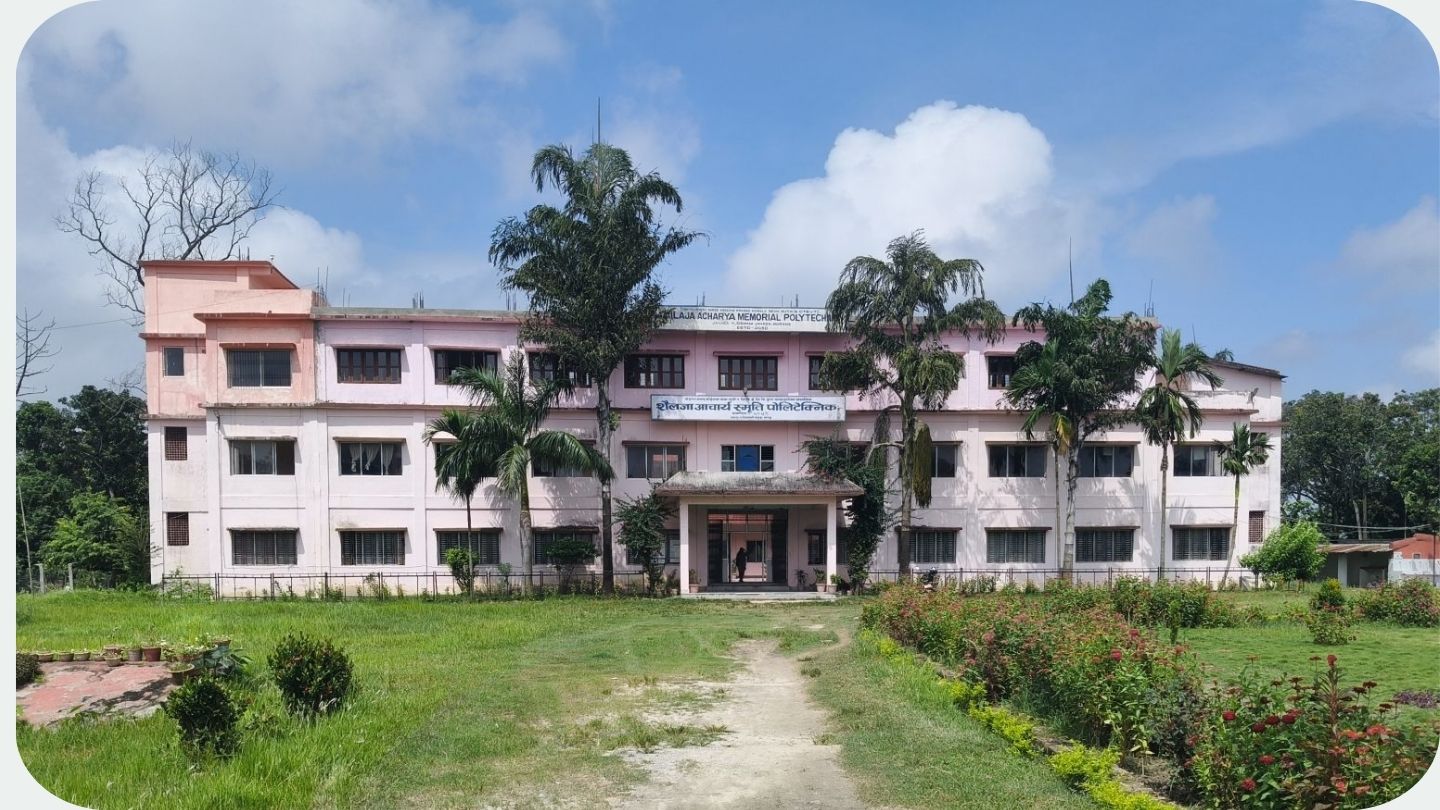
Academic Programs Offered
Programs follow CTEVT curriculum structures and operate as per session-wise approvals and council guidelines. Duration is typically three years for diploma streams and about 18–24 months for pre-diploma streams.
Health Sciences
PCL Nursing (Staff Nurse)
PCL Nursing prepares learners for hospital wards, community posts, and maternal-child health services. Students move through fundamentals first, then clinical areas with supervised rotations.
Key study areas
-
Fundamentals of Nursing, Medical-Surgical Nursing
-
Community Health, Midwifery, Child Health
-
Pharmacology, Nutrition, Professional Practice
-
Clinical postings in recognized hospitals and health facilities
Typical roles and pathways
-
Staff Nurse in hospitals and nursing homes
-
Community health services, maternal and child health programs
-
Higher study options such as BN/BSN or public health
Diploma in General Medicine (Health Assistant)
The Health Assistant program trains first-contact health workers for primary care and community settings. Emphasis is placed on safe procedures, documentation, counseling, and referral.
Key study areas
-
Anatomy & Physiology, Pharmacology, Pathology
-
Community Health and Epidemiology
-
Internal Medicine, Surgery basics, Obstetrics & Gynecology basics, Pediatrics
-
Field postings and supervised clinical practice
Typical roles and pathways
-
Health Assistant in government health posts, clinics, and NGOs
-
Progression to bachelor-level public health or related fields
Diploma in Pharmacy
This program builds knowledge and practice in medicines, dispensing, counseling, and safe storage. Learners work in labs to rehearse accurate calculations, labeling, and stock control.
Key study areas
-
Pharmaceutics, Pharmacology, Pharmacognosy
-
Pharmaceutical Chemistry
-
Hospital and Community Pharmacy
-
Pharmacy law and ethics; practice in simulated or real settings
Typical roles and pathways
-
Pharmacy technician in hospital or retail pharmacy
-
Distribution and basic quality support under supervision
-
Progression to bachelor-level pharmacy or allied subjects
Engineering
Diploma in Civil Engineering
Civil engineering students learn site practice, drawing, estimation, and material testing. The program fits learners who want to work with survey teams, contractors, or municipal projects.
Key study areas
-
Engineering Drawing/CAD
-
Construction Materials, Concrete and Soil Technology
-
Surveying, Hydraulics, Estimation & Costing
-
Basic construction management and site practice
Typical roles and pathways
-
Site overseer, quantity assistant, survey crew member
-
Drafting technician in design and planning offices
-
Lateral entry routes to bachelor-level study (as per rules)
Pre-Diploma in Survey Engineering (Amin)
This stream prepares survey assistants for land measurement, mapping, and basic GIS exposure as available.
Key study areas
-
Plane/chain surveying, leveling, traversing
-
Topographic mapping and basic geodesy
-
Use of common survey instruments and data handling
Typical roles
-
Amin/survey assistant in land offices, municipalities, and engineering firms
Pre-Diploma in Computer Engineering (JCT)
The JCT stream readies technicians for hardware maintenance, basic networking, and user support in labs, schools, and offices.
Key study areas
-
PC assembly and troubleshooting
-
Operating systems and software installation
-
Basic networking and peripherals
-
Helpdesk workflows and documentation
Typical roles
-
Computer lab technician, field support, junior network assistant
Agriculture
Diploma in Agriculture (Plant Science)
Learners build crop husbandry skills with field practice in nurseries and plots. The coursework suits students who plan to work with municipal programs, cooperatives, or agri-businesses.
Key study areas
-
Agronomy, Horticulture, Plant Protection
-
Soil Science, Seed Technology
-
Farm management and exposure to local value chains
Typical roles and pathways
-
Junior technician in ward/municipal agriculture sections
-
Roles in agribusiness input/output chains and NGOs
-
Progression to bachelor-level agriculture programs
Diploma in Agriculture (Animal Science)
This stream supports livestock production and basic animal health services under veterinary supervision.
Key study areas
-
Livestock production systems and nutrition
-
Preventive care and husbandry practices
-
Dairy/meat handling basics, pasture management
-
Extension approaches and farm placements
Typical roles
-
Livestock technician in municipalities, farms, feed companies, and development projects
Pre-Diploma in Plant Science (PJTA)
PJTA trains junior crop technicians for nursery work, field practice, and community extension.
Key study areas
-
Crop production and plant protection basics
-
Nursery management
-
Farm record-keeping and local input management
Typical roles
-
PJTA in ward agriculture services, co-ops, and agri-input outlets
Pre-Diploma in Livestock Production/Animal Health (VJTA)
VJTA prepares junior para-professionals to support vaccination camps, deworming, and routine husbandry under guidance.
Key study areas
-
Livestock production and basic health procedures
-
Preventive programs and community outreach
-
Farm hygiene and simple record-keeping
Typical roles
-
Support roles with municipal livestock units, local farms, and co-ops
Ayurved and Early Childhood
Pre-Diploma in Ayurved
Learners study traditional health concepts and community-level support practices within the approved course framework. Graduates assist in awareness and basic care settings aligned with local norms.
Pre-Diploma in Early Childhood Development Facilitation
This stream supports facilitators for early years learning spaces. In selected sessions it may run under dual-apprenticeship projects or provincial skills programs where announced.
Short-Term Skills Training
SAMP and SKPKSG run time-bound skill courses in line with local needs. Past offerings include sewing, non-seasonal vegetable farming, boutique/handicraft, milk processing, basic electrical tasks, beekeeping, poultry rearing, mother-and-child service, and similar options. These courses help youths and women start micro-enterprises or find wage opportunities.
Admission Process
Admissions follow CTEVT rules and session-wise notices.
Eligibility and entrance
-
Diploma streams: Minimum academic qualifications as per CTEVT guidelines and entrance tests where required.
-
Pre-diploma streams: SEE or equivalent with subject criteria listed in the annual call.
-
Health programs also follow council rules (e.g., Nepal Nursing Council, NHPC).
Selection and quotas
-
Merit lists prepared under open and reserved categories.
-
Reserved categories follow national directives and, where applicable, provincial quotas.
Application steps
-
Fill the online/offline form during the admission window.
-
Submit academic certificates, character certificate, citizenship/birth registration, photographs, and any council-specific documents.
-
Complete verification, fee payment, and orientation as per schedule.
Timelines
-
Session dates, interview slots, and cut-off admissions are announced by CTEVT and the institute.
-
Candidates should monitor official notices for vacancy refills and reporting deadlines.
Teaching Faculty and Learning Methodology
SAMP’s teaching team includes health professionals, engineers, agriculture specialists, and ICT instructors with classroom and field experience. Classes combine theory with guided practice in labs, farms, workshops, clinics, and sites.
How learning happens
-
Lesson plans and course files align with the curriculum.
-
Skill practice in small groups to improve accuracy and safety.
-
Field/clinical postings for real-world exposure and logs for assessment.
-
Regular internal tests, viva, practical exams, and project reviews.
Quality and safety
-
Assessment and record-keeping follow CTEVT norms.
-
Lab protocols, PPE, and standard procedures are part of routine practice.
-
Ethics, documentation, and patient/client safety are treated as core habits.
Infrastructure and Learning Facilities
The campus provides classrooms, a library, labs, and workshops suited to each stream. The environment is simple and purposeful, with steady attention to basic maintenance and stock control.
Facilities at a glance
-
Classrooms with board/projection support and scheduled contact hours
-
Library with textbooks, standards, and exam preparation materials
-
Nursing skill stations for procedures and simulation
-
Pharmacy practice areas for dispensing and compounding
-
Civil labs for materials testing and surveying; CAD support
-
Agriculture plots, nurseries, and access to livestock practice as scheduled
-
Computer labs for hardware, OS, and networking tasks
Learning resources
-
Instruments, models, and kits per subject outlines
-
Logbooks, manuals, and forms required by the curriculum
-
Access to guidelines for internal assessment and final board exams
Student Life and Campus Experience
Student life at SAMP is structured but friendly. Many learners commute from nearby municipalities, while others rent rooms close to campus. Timetables balance theory and practice so students can prepare for labs and fieldwork without losing study time.
What students can expect
-
Regular classes with clear attendance norms
-
Doubt-clearing hours and remedial support before assessments
-
Guidance for clinical postings, survey assignments, and farm schedules
-
Community work such as health camps, sanitation drives, and crop demonstrations
Extracurricular Activities (ECA)
ECA contributes to teamwork, confidence, and public speaking—skills that matter at worksites and clinics.
Common activities
-
Sports meets and friendly matches when the calendar allows
-
Cultural events, exhibitions, and simple stage programs
-
Student newsletters or in-house publications for short articles and reflections
-
Skills showcases: project models, posters, and mini-demonstrations
Scholarships and Financial Support
Financial support runs on policy and availability each session.
Scholarship channels
-
CTEVT and government schemes for specific groups as per national rules
-
Institutional concessions where announced, often merit- or need-based
-
Partnerships with provincial skills projects for stipend or apprenticeship models in selected intakes
How to apply
-
Watch official notices for seat numbers, eligibility, and documents
-
Submit forms on time with correct proofs and signatures
-
Keep copies of all receipts, IDs, and certificates for future checks
Achievements and Institutional Milestones
SAMP’s growth reflects long-term work with local communities and public agencies. The institute began with short courses and gradually expanded to diploma and pre-diploma programs in health, engineering, agriculture, and ICT.
Selected timeline points
-
Early 2060s BS: Growth in ANM/health, Ayurved assistant, and agriculture JT/JTA streams under guthi efforts
-
2066 BS onward: Nursing college infrastructure support and launch of multi-year nursing studies
-
2070–2076 BS: Expansion into agriculture science, survey, computer, and civil engineering programs
-
2080 BS onward: Diploma in Pharmacy and added intakes per approvals
-
Recent years: Early Childhood Development Facilitation and dual-apprenticeship intakes in partnership with provincial skills projects
Graduate impact
-
More than three thousand diploma graduates across streams
-
Over a thousand trainees from short skill courses supporting local livelihoods
-
Alumni working in municipalities, hospitals, farms, construction firms, co-ops, and private enterprises; many self-employed
Why Choose This Institution?
Choosing a campus is a practical decision. Students weigh distance, fees, learning support, and job routes. SAMP offers clear pathways within the national system and steady exposure to real work.
Reasons students pick SAMP
-
CTEVT affiliation and council recognition for health programs
-
Multiple sectors under one campus: health, engineering, agriculture, ICT
-
Habit of practice: labs, fieldwork, community postings, and site tasks
-
Community-oriented spirit through SKPKSG and local partnerships
-
Clear records, logbooks, and assessments that match board requirements
-
Guidance for higher study paths in Nepal and abroad
Conclusion
Sailaja Acharya Memorial Polytechnic serves learners who want skills that link directly to workplaces and public services. The institute runs within CTEVT rules, keeps close ties with councils and local bodies, and builds steady routines of lab work, field assignments, and documentation. For students, parents, and planners seeking verified routes into health, engineering, agriculture, or ICT, SAMP offers a plain, reliable path: learn the subject well, practice it often, document your progress, and move forward to jobs or further study with recognized credentials.



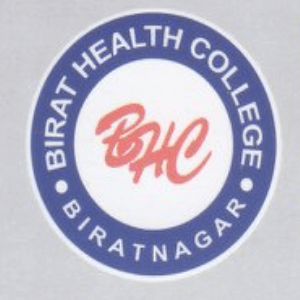
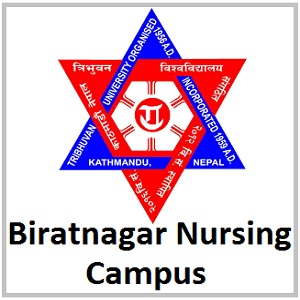
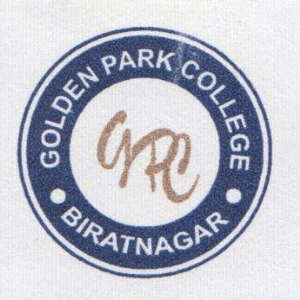
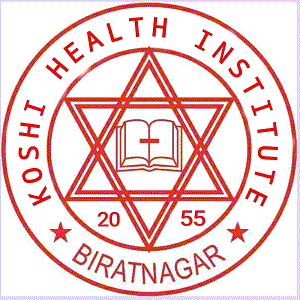
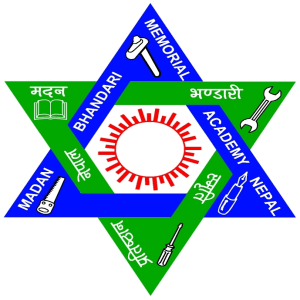
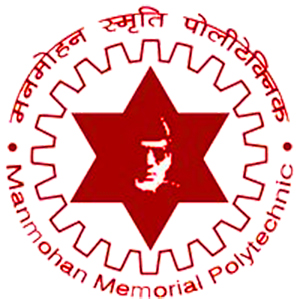










You need to login to comment.